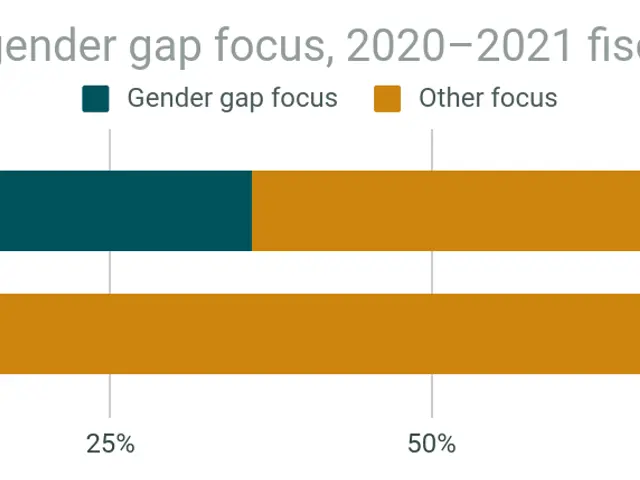Discussing Gambling Trends: Major Operators Emphasizing Their Stakes on First-Person Shooter Games
**Impact of Free-to-Play (FTP) Games on User Behaviour and Retention in Gambling**
In the realm of both traditional video gaming and gambling, Free-to-Play (FTP) games have emerged as a powerful tool to engage users and extend their session times. By incorporating elements of behavioural psychology, such as achievements, levels, rewards, limited-time events, and community participation, FTP games foster regular participation and habitual engagement, often resulting in improved user retention rates [1].
One crucial aspect learned from traditional FTP gaming is the significance of **D1, D7, and D30 retention metrics**. Day 1 retention hinges on a smooth onboarding experience, Day 7 on mid-game engagement and conversion to paying users, and Day 30 on deeper game systems and social features that sustain long-term engagement [3]. By analysing where drop-offs occur and implementing features to address these points, such as optimising tutorials, offering early high-value rewards, and fostering social connections, gambling operators can emulate these strategies to enhance user retention rates [3].
## Operator Strategies for Effective Integration
To capitalise on the potential of FTP games, operators employ various strategies. **Improved onboarding** involves creating smooth, interactive tutorials and first-time user experiences to reduce early drop-offs, such as guided walkthroughs of betting options [4]. **Gamification** strategies include rewards, achievements, leaderboards, and streak counters to encourage daily engagement, like loyalty programs with level-up rewards [4]. **Community building** fosters a sense of belonging through forums, leaderboards, group challenges, and shared goals [4].
Operators also offer **monetization variety**, allowing users to purchase premium features, cosmetics, or exclusive content, alongside traditional bets, such as buyable avatars, power-ups, or betting boosts [4]. **Live and social features** replicate the social casino experience, offering live dealer games, multiplayer tables, and real-time chat, like live poker rooms and real-time chat [4].
**Personalization and analytics** play a crucial role, with advanced analytics and machine learning used to tailor offers and experiences to user preferences, such as personalized betting recommendations [4]. Operators also cross-pollinate genres, integrating FTP mechanics into sports betting, slots, and esports to attract diverse audiences, such as sports betting with mission-based rewards [4].
## Integration into Wider Entertainment Ecosystems
Operators are increasingly embedding FTP mechanics across their product portfolios, from slots and table games to sports betting and esports. This approach not only retains casual users (who may spend little at first but are habitual users) but also creates pathways for conversion into paying customers as users seek enhanced features or exclusive content [1][5]. Real-time data collection and reward delivery further allow operators to reactivate lapsed users and maintain engagement during off-peak times.
These games can be linked directly to real-money rewards, such as bonus bets, cash drops, or deposit matches. The same AI that personalises the fun part of the experience is also used to protect players, identifying subtle changes in behaviour that could be markers of harm. An effective bonus engine integration enables operators to determine the next best action for every player type at any given moment.
AI will use a player's FTP behaviour to dynamically re-architect the entire app interface in real-time, creating a betting experience that is psychologically tailored to them. Total goals markets have shown solid increase in betslip conversion when introduced into FTP game formats. The Pick6 format is an effective FTP mechanic for bet conversion, bridging entertainment and real-money play.
In the context of improving user engagement and retention in gambling, operators could consider implementing gamification strategies similar to Free-to-Play (FTP) games, such as reward systems, achievements, and leaderboards in casino-and-gambling, including casino-games and sports-betting. By doing so, they may attract diverse audiences, expanding their user base and potentially encouraging safer gambling practices through personalized experiences and AI-driven protection mechanisms.






